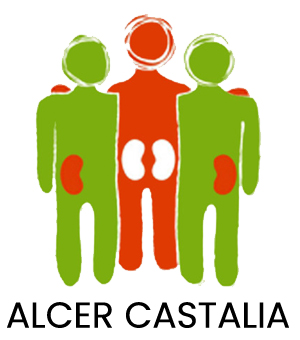“LIVE LIFE, THEN GIVE IT”
What is organ donation for?
In Spain there are thousands of people who need an organ transplant to save their lives or substantially improve their health.
Who can be a donor?
Any person over 18 years of age, or a minor with the consent of their parents or guardians .
Procedures, donation guarantees and legal regulation of transplants
Transplants are regulated by Law 30/1979 of October 27, on organ extraction and transplants, modified and developed in Royal Decree 2070/1999 of December 30, which regulates the activities of obtaining and clinical use of organs. human rights and territorial coordination in matters of donation and transplantation.
In accordance with this regulation, the extraction of organs for transplant can only be carried out in a public Social Security hospital or a private health center legally authorized by the Competent Health Authority.
In Castellón, only the General Hospital is accredited to perform extractions.
The death of the possible donor will be certified after the multiple and complex verifications established by the regulations, and which certify the irreversible cessation of cardiorespiratory functions or the equally irreversible cessation of brain functions.< /p>
What do religions say about donation?
None of the great religions of civilization opposes donation. “Donation is an exercise of solidarity and human fraternity and proof that the body dies but never the love it sustains.”
What role does the family play in authorizing organ donation?
Although the law makes us all donors, if we have not stated our opposition, in practice the family will always be asked about the will of the deceased person. That is why it is important to communicate the decision to become a donor to the closest relatives.
What happens when the deceased person is a donor and the family does not authorize the donation?
If the family states that the deceased person had declared during his or her lifetime his or her will not to donate and, therefore, does not authorize the donation, this decision is always respected. There is the possibility that a person drafts a living will during his or her lifetime where he or she declares his or her decision to be an organ donor after his or her death. In this case his will is compulsorily respected.
Will the doctors’ attitude change when it comes to treating me at a critical moment, if they know that I am a donor?
No. Doctors always work trying to save the lives of the sick. The transplant team does not It has to do with the potential donor until the doctors treating him determine that all efforts made to save him have been useless. After the death of a person, transplant doctors try to save the lives of other patients who have no other possibility of cure.
Is the body disfigured after the removal of organs and tissues?
No. The removal of organs and tissues is a surgical operation that is performed in the operating room by a team of specialists.
Once the intervention is over, the cuts made are sutured, the body is washed and wrapped in a shroud. There are no deformities or external injuries left to disfigure the corpse.
Is the trade in human organs allowed?
No. The Spanish Transplant Law prohibits receiving any type of compensation for organ donation. The National Transplant Organization and the Health authorities of the Autonomous and local administrations control all donors and all transplanted organs, in such a way that a transplant operation could never be performed in Spain without the donor and recipient being known.
Does the family have to pay anything for organ donation or transplantation?
No. The Transplant Law requires that both organ donation and transplant are free.
There are times when life depends on a donation
That is why if a health professional asks you to donate the organs of a recently deceased relative, it is because they belong to the small number of people whose organs are in optimal conditions to be transplanted. And because there is a patient whose hope of living depends exclusively on that donation. Get in your case and try to be understanding of your anguish.
Where are we?
ALCER Castalia has its headquarters in a central office building, on Enmedio Street, 22 in the city of Castelló de la Plana.
Due to the expansion of services, we are distributed in three offices, from where, in addition to management and coordination, we carry out part of the care, as well as various activities.
Currently, the distribution of the three offices is as follows:
- ALCER 4A Offices - A main office, where management and administration, social care, nutritional care and coordination of activities are located.
- Offices Transport: 4F - An office with two offices: transportation management and psychological care.
- Room multifunctional 2nd E - An office with a large room for holding meetings and activities (workshops, talks...), a warehouse and an office for service.
